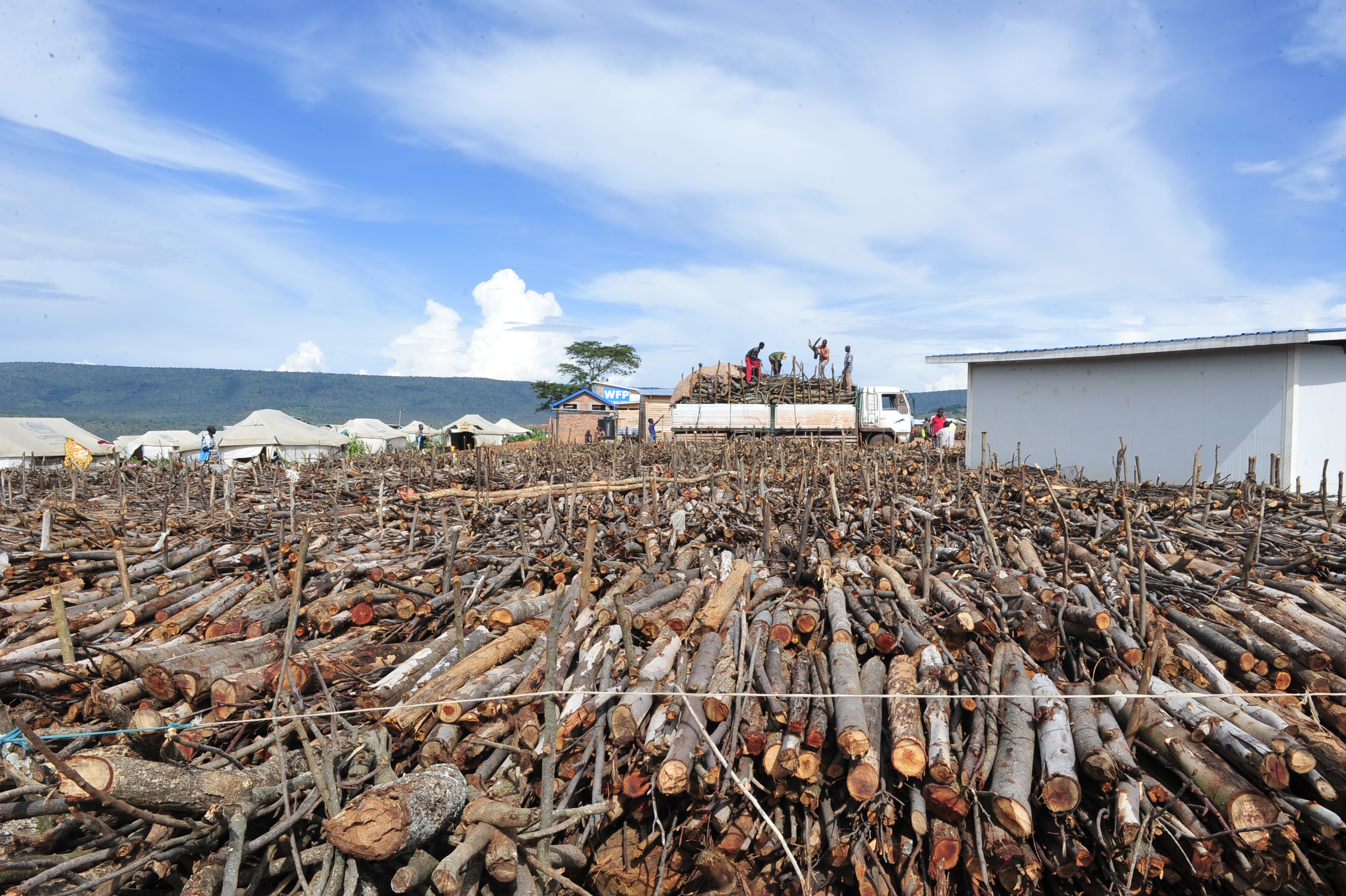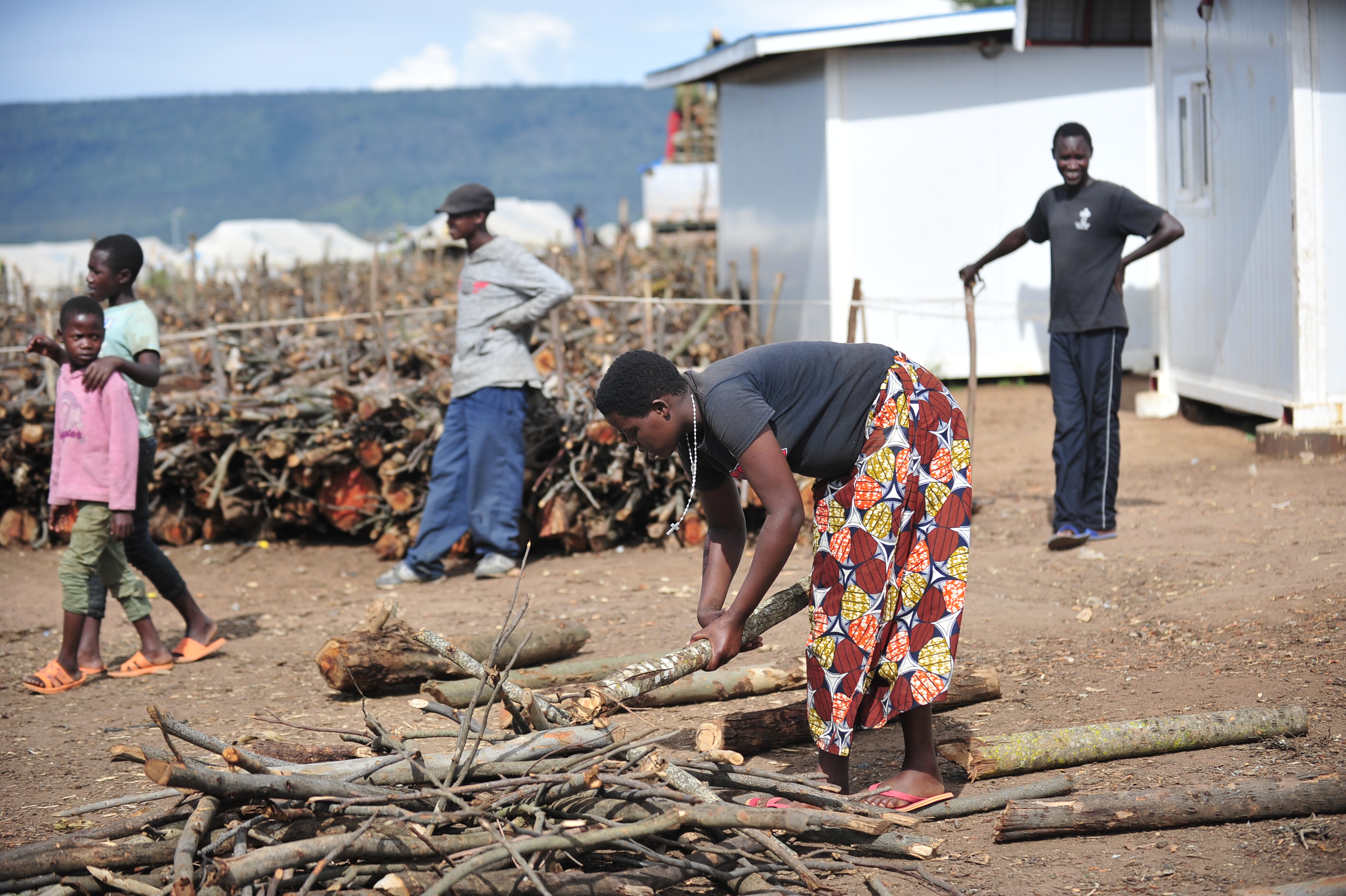Alliance’s Humanitarian Work and Partners Make Impact in Rwanda
Global Alliance for Clean Cookstoves (Alliance) partners joined together at the end of April for a five-day observation and learning trip to Rwanda. The trip provided Alliance multilateral, bilateral, and NGO partners with an in-depth opportunity to learn about Rwanda’s clean cooking market and its diverse range of stakeholders, as well as the energy challenges of over 160,000 Congolese and Burundian refugees within the country. Participants came away from the trip invigorated and inspired by the work of the Alliance and our local partners in making clean and efficient cooking solutions accessible, even for the most vulnerable populations.
One of the main objectives of the trip was to introduce and educate participants about the Alliance’s humanitarian work, which includes supporting the development and implementation of UNHCR Rwanda’s Safe Access to Fuel and Energy (SAFE) strategy and co-chairing the SAFE Humanitarian Working Group. Participants also learned about the Alliance’s M&E training for humanitarian practitioners and the outcomes of efforts to evaluate energy needs within five refugee camps in Rwanda. During the trip, participants visited the Mahama and Mugombwo refugee camps to learn about the energy challenges and opportunities for families there.
In the Mubomgwo camp, trip participants learned about and observed the positive impact that the Save80 cookstove had on safety and fuel collection for Congolese refugee households. The Save80 cookstove distribution program was a result of a partnership between the carbon project developer atmosfair, UNHCR, and others, and incorporated many lessons learned from a previous project in the Kigeme camp. According to the Alliance’s energy assessment, households that used the Save80 cookstove exchanged or sold their food rations for fuel 47% less often than users of the three-stone fire, and conducted 32% fewer trips to collect firewood during a seven-day recall period. Refugee families explained that the Save80 cookstove allows them to “rely less on fetching firewood to go outside of the camp.” As next steps, atmosfair, UNHCR, and their partners will improve programs and livelihood opportunities to maintain and repair the Save80 cookstoves.
During focus group sessions at UNHCR’s Mahama camp—Rwanda’s newest camp housing almost 50,000 Burundian refugees—participants engaged with refugee households to learn about the devastating impacts of limited access to sufficient cooking energy. One refugee participant explained, “the biggest problem for women of Mahama camp is firewood. [Collecting] it causes all of the sexual violence [outside of the camp].” Firewood collection was one of the most persistent issues that refugee women and girls faced. The government of Rwanda provides one cubic meter (a “stere”) of firewood per month to groups of 22 refugees, which they then divide among themselves. However, this amount of wood does not sufficiently meet a family’s cooking energy needs. In many cases, women and girls are forced to collect firewood outside of the safety of the camp, and are often violently assaulted by local community members who feel the refugees are stealing from their land. Unfortunately, because collecting firewood is illegal in Rwanda, refugee women often fear reporting assaults. Many families also sell their food rations in order to obtain more firewood, and girls miss school when they must collect wood for cooking. The focus group participants urged the Alliance group to help address the issue of firewood scarcity and help improve their safety and lives. Some suggested increasing support for community mobilisers to raise awareness among local and surrounding communities about sexual assault.
The week also included a daylong visit to the city of Gisenyi where participants met with representatives from Inyenyeri, a local company with an innovative clean fuel and stove distribution model. Participants visited the company’s operations center, customer homes, and pellet factory, and learned about its business model of leasing low-emission cookstoves to households, and selling customers the fuel pellets to burn in them. The pellets cost less than charcoal, and households who can’t afford to buy them can trade biomass for pellets. While in Gisenyi, a representative from Laterite, a research firm, presented on an Alliance-funded impact evaluation, which is being conducted by researchers from the University of North Carolina – Chapel Hill. The researchers are independently studying the Inyenyeri program’s impact on adoption and clean cooking.
Other trip highlights included engaging discussions with Rwanda’s Minister of Health Dr. Agnes Binagwaho about Rwanda’s health system and government-supported clean cooking program, and with the UNHCR Representative in Rwanda Dr. Azam Saber about leveraging innovative partnerships to transform the lives of refugees in Rwanda. The group also visited a SNV supported improved cookstoves cooperative outside of Kigali; learned about Rwanda’s standards development and testing capacity through a meeting with the Rwanda Standards Board; and heard from clean cooking stakeholders – such as Practical Action, the Rwanda Renewable Energy Alliance, DelAgua, the Rwanda Energy Group, and local manufacturers – about the dynamics of the Rwandan clean cooking and energy markets. One of the most encouraging sector developments in Rwanda is the country’s VAT tax policies. Clean cookstoves that are classified as tiers 2, 3, or 4 in emissions and efficiency are exempted from VAT tax, an extremely progressive and unique policy that is encouraging a healthier market in the country.
Finally, participants had the opportunity to visit rural and refugee households to learn firsthand about cooking and fuel challenges. In Gisenyi, the group met Bukoka Deboha, a mother and life-long resident of the city, who explained how her life has significantly improved since she became an Inyenyeri customer in 2014 and started using a Mimi Moto cookstove, one of the cleanest and most efficient biomass stoves available in the market.
Previously, she would buy an expensive bag of charcoal for 11,000 RWF, or USD 14, per month. With a Mimo Moto stove, she only spends 4,000 RWF, or USD 5 on pellets per month, and her family does not breathe in suffocating smoke. Bukoka explained that with savings on charcoal, she can “afford fees for her daughter to go to school,” and her life has changed for the better.
The Alliance would like to thank the participants and partners for their invaluable contributions to the successful trip. If you are interested in learning more about future observation and learning trips, please contact Kavanaugh Livingston, Senior Associate, at klivingston@cleancookstoves.org.


